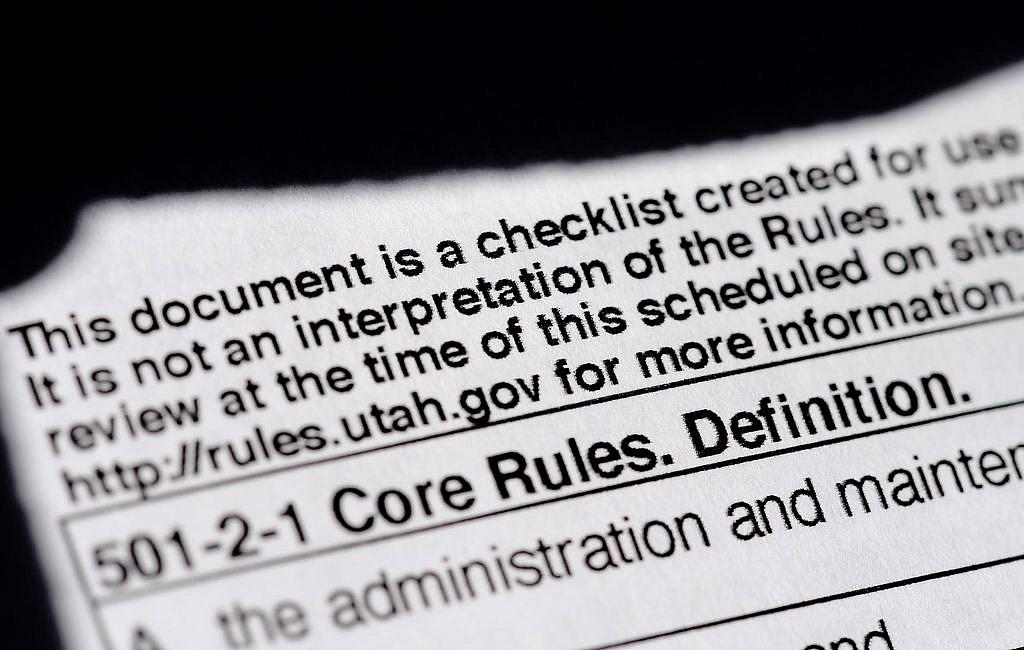Utah officials want your help as they draft new rules for the ‘troubled-teen’ industry
This story was produced as part of a larger project by Jessica Miller, a participant in the 2019 Data Fellowship. Her project focuses on the troubled rehabilitation industry in Utah, where youth residential treatment centers are abundant but lack oversight.
Also in this series:
Paris Hilton says she was abused while at Utah facility for ‘troubled teens’
Part 2: Provo Canyon School’s history of abuse accusations spans decades, far beyond Paris Hilton
Paris Hilton creates petition to shut down Provo Canyon School
Paris Hilton leads rally against Provo Canyon School
Why we raised money to get reports on Utah’s ‘troubled teen’ treatment centers
Part 3: Utah faces criticism for its light oversight of ‘troubled teen’ treatment centers
Part 4: Former students at Utah troubled-teen centers say their reports of sex abuse were ignored
Utah inspectors find no problems in ‘troubled-teen’ facilities 98% of the time
Increased oversight is coming to Utah’s ‘troubled-teen’ industry
A girl, her hands zip tied, was forced to sit in a horse trough at a Utah ‘troubled-teen’ center

Teen treatment registry.
(Francisco Kjolseth | The Salt Lake Tribune)
A new law goes into effect Wednesday that will bring more oversight to the nearly 100 youth treatment centers in Utah. As part of that, state officials must craft new rules. And they want your help.
A survey — which asks about suicide prevention, when kids can be held in restraints, and opinions about gender-affirming care — was released by Utah’s Office of Licensing on Wednesday. They want to hear from people who work in the “troubled-teen” industry and those who stayed in one of these centers. They want to hear from advocates and simply people who have ideas.
The department is the primary regulators of the youth congregate care in Utah, and it is implementing the first new regulations on this industry in 15 years.
“We want to make sure that the rules we develop clearly define the intended improvements in the law,” director Amanda Slater said. “These programs must be safe places that promote respect, health and healing for youth requiring services.”
Utah plays an outsized role in this industry. The state has nearly 100 youth residential treatment centers and over the past five years, more than 12,000 children have stayed in one. Most of those kids come from other states. Some are sent by their parents, while others are ordered into treatment by a judge after breaking the law or are foster kids brought here because no place in their home state will take them.
The Salt Lake Tribune has detailed allegations of abuse, mistreatment and chemical sedation at these Utah facilities over the past two years. And activists like celebrity Paris Hilton have become increasingly vocal, organizing online and holding rallies to pressure officials to make change.
Allegations of abuse have dogged the industry, and came to a head during this year’s legislative session after former residents, including Hilton, testified about mistreatment they say they experienced in facilities in Utah and elsewhere.
State senators who heard the emotional testimony said they were embarrassed about what was happening and apologized to Hilton and others who were mistreated.
Under the new law, treatment centers will be required to document any instance in which staff used physical restraints and seclusion and to submit reports to the Utah Office of Licensing. The law also prohibits programs from sedating residents or using mechanical restraints, like a straitjacket, without the office’s prior authorization.
The Office of Licensing will now be required to conduct four inspections each year — both announced and unannounced — and will receive additional funding for eight new full-time state licensing employees to achieve that aim. Public records show the office previously inspected most facilities just once a year, and rarely uncover problems.
In the survey, officials ask what their priorities should be when inspecting a facility, such as talking with residents or staff or reviewing a facility’s policies for behavior management.
It also asks about what alternatives should be used instead of staff members putting residents in restraints, and when seclusion should be allowed.
The survey will close on May 16 and the state has to implement the new rules by the end of November.
[This article was originally published by The Salt Lake Tribune.]

